source: editor:Zhang Wenni
Editor's note: the twenty-four solar terms, as a supplementary calendar for guiding farming in ancient China, are the fruits of the long-term experience and wisdom of the working people in China. This broad and profound scientific and cultural system is one of the quintessence and representatives of the excellent traditional Chinese culture. In order to further carry forward traditional culture, enhance the awareness and interest of netizens in traditional culture, and further strengthen their cultural self-confidence, the series of theme activities of "great Xi'an in the solar terms of the" Internet China Festival "in Xi'an, sponsored by the Internet Information Office of the CPC Xi'an Municipal Committee, launched a series of cultural popular science articles to experience the charm of traditional culture and inherit the new trend of civilization of the times.
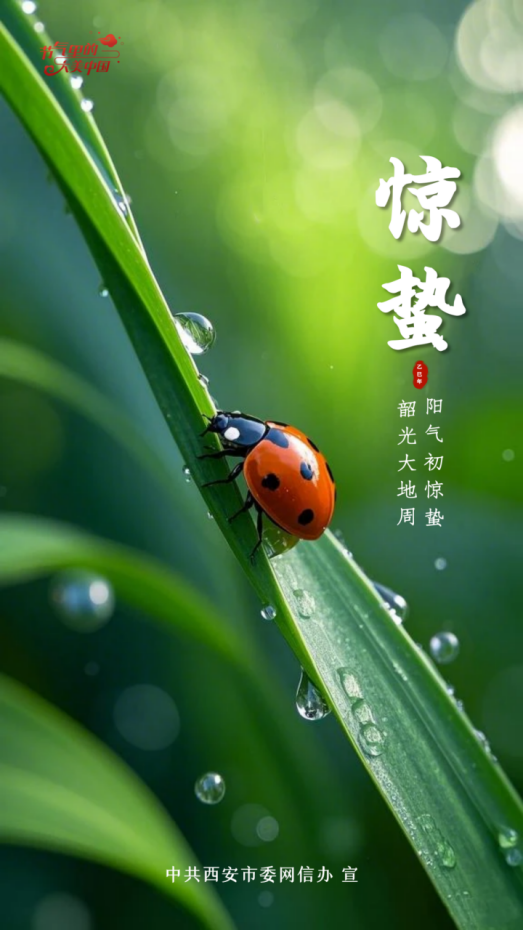
A shower of flowers and a few stinging thunders.
On March 5, we ushered in a lively solar term - Awakening of Insects (Chinese: 惊蛰), which is the third of the twenty-four solar terms, marking the beginning of mid spring.
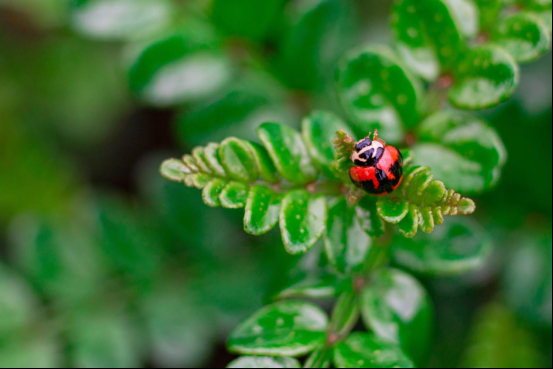
In ancient times, it was called " Awakening of Insects ". In the collection of the seventy-two seasons of the lunar calendar, it is said that "on February day... Everything was shocked by a shock, and the shock became thunder. Therefore, it is called waking up the insects, which scared them away." in Xu Shen's Shuowen Jiezi, the word "sting" is interpreted as "Zang Ye". According to xiaxiaozheng, "when the first month begins to awaken the insects, it is said that they will awaken the insects." later, it was changed to "awaken the insects" because it avoided the taboo of emperor Liu Qi of the Han Dynasty. The ancients believed that insects were dormant underground in winter. When the spring thunder sounded, the insects were awakened and began to move, so it was called "waking up".
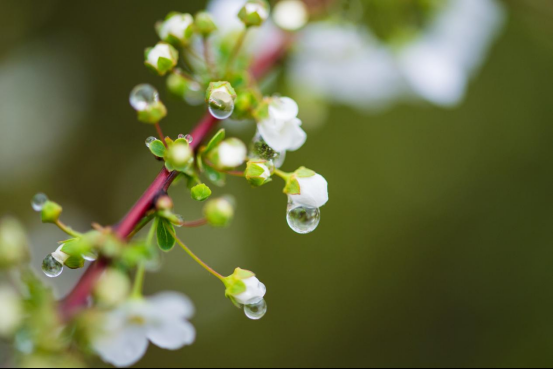
As the old saying goes, "thunder before waking up, and the clouds will not open in 49 days". Most proverbs about the terms of waking up are related to spring thunder, warming up and spring ploughing. For example, "when waking up, it will be warm, and the toad old horn will sing a folk song", "when it comes to the waking up Festival, the hoe will not stop", "waking up without raking the ground is like steaming the steam away from the steamed bun"... As an important node of agricultural production, the waking up season is the key period of spring ploughing and spring planting. In the north, winter wheat began to turn green. Farmers need to pay close attention to fertilization and irrigation to ensure that crops thrive. In the south, the season of waking insects is the golden time for rice planting. The agricultural proverb "when the spring thunder rings, the farmer turns from idle to busy" and "when the spring thunder rings, the farmer turns from idle in winter to busy in spring" vividly depicts the picture of farmers turning from idle in winter to busy in spring.
The solar term of waking insects is also the source of inspiration in the works of scholars. Wei Yingwu, a poet of the Tang Dynasty, wrote in "watching the countryside" that "the light rain brings new flowers, and a thunder awakens the insects. The farmland is idle for a few days, and farming begins from then on." he described the scene of continuous spring rain and the recovery of all things in the season of Awakening of Insects, as well as the busy rural life of farmers.
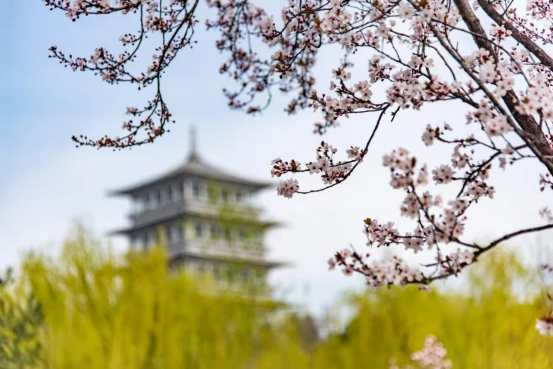
Lu You, a poet of the Song Dynasty, also wrote in "boating in the sunny spring" that "when the thunder blows, the insects will be awakened and the earth will be opened up and the sun will turn to a bright future." taking the insects as a metaphor, he expressed his awe of the natural forces and praise for the vitality of life.
Yuan Zhen, a poet of the Tang Dynasty, wrote in his poem "singing the twenty-four Qi: waking up the insects in February Festival": "when the Yang Qi starts to wake up the insects, the earth is in full bloom. Peach blossoms are blooming in Sichuan, eagles are aging and spring doves are growing. Time is pressing, and the sprouts are cultivating each other. Human affairs cause trouble, and the fields are full of cultivation." the east wind, the warmth of the time, the fragrance of flowers and rain, and the chirping of birds and birds are the typical phenological phenomena of waking up the insects.
There are three periods for waking insects. The first period is when the peach blossoms begin to bloom. "The red peach blossoms become tender, the green ones return to the willow leaves," and the peach blossoms in early spring begin to bloom. "The peach is young and bright" describes the peach blossom in full bloom; Second, when Cang Geng sings, Cang Geng is the oriole. At this time, Orioles feel the spring air that makes everything recover and begin to cry; Three waiting Eagles turned into doves, and "doves" were cuckoos. The ancients found that in the middle of spring, there were fewer Eagles cruising in the sky, but more cuckoos on the ground, so they thought it might be that the eagles in the sky turned into cuckoos on the ground. A thunderclap played the prelude of spring. Everything competes in spring, and everything is thriving.
With green waters and mountains, numerous flowers and ten miles of spring breeze, Xi'an invites you to feel the vitality of spring outdoors. In Tang Village, Chang'an, the plum garden, covering an area of 50 mu, not only has a wide variety of plum trees, but also has a long flowering period. With the breeze blowing, the fragrance of the flowers is refreshing, as if you were in a beautiful fairyland on earth; In tumenyu village, every spring, ten thousand mu of peach blossoms compete to open. You can enjoy the "peach blossoms still smile at the spring breeze" and "peach blossoms reflect each other red". The two dragon pagodas and other historical sites in the village add profound cultural heritage to this land; In Cuihua Mountain, Nanwutai, Lantian apricot Valley and other places, elm leaf plum, peach blossom, apricot blossom, Forsythia suspensa, Magnolia, etc., have opened one after another, dotted with the long-awaited green of the Qinling Mountains.
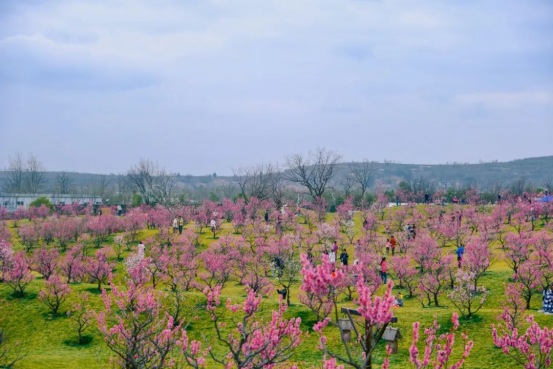
In order to bring better spring experience to citizens and tourists, Xi'an Railway Bureau opened a special train to enjoy flowers. Starting from Xi'an, visitors can enjoy the plum blossoms in Xi'an, the pear flowers in Pucheng, and even the rape sea in southern Shaanxi to immerse themselves in the unique landscape of Shaanxi.
"When insects awaken and eat pears, diseases and pests are kept away.". In Xi'an, there is a custom of waking insects and eating pears, hoping to stay away from disease and be healthy and safe. As the saying goes, "a cold sting awakens a warm spring", and Zhongchun is also at a time of sudden cold and sudden warm. The temperature is changeable and it is easy to be thirsty. Eating pears can help temper, strengthen physique and keep away from diseases. In addition, "pear" is homonymous with "Li", which means leaving home to start a business. A pear is also a promise for a better future.
Spring thunder announces the end of winter silence, stinging insects awaken the vibrant rhythm of life, and peach blossoms foretell the grand scene of fragrant flowers. Awakening of Insects is the horn of spring and the praise of life. May you, like all things in the spring, be full of vitality and hope, listen to the call of spring thunder and welcome a spring full of vitality.